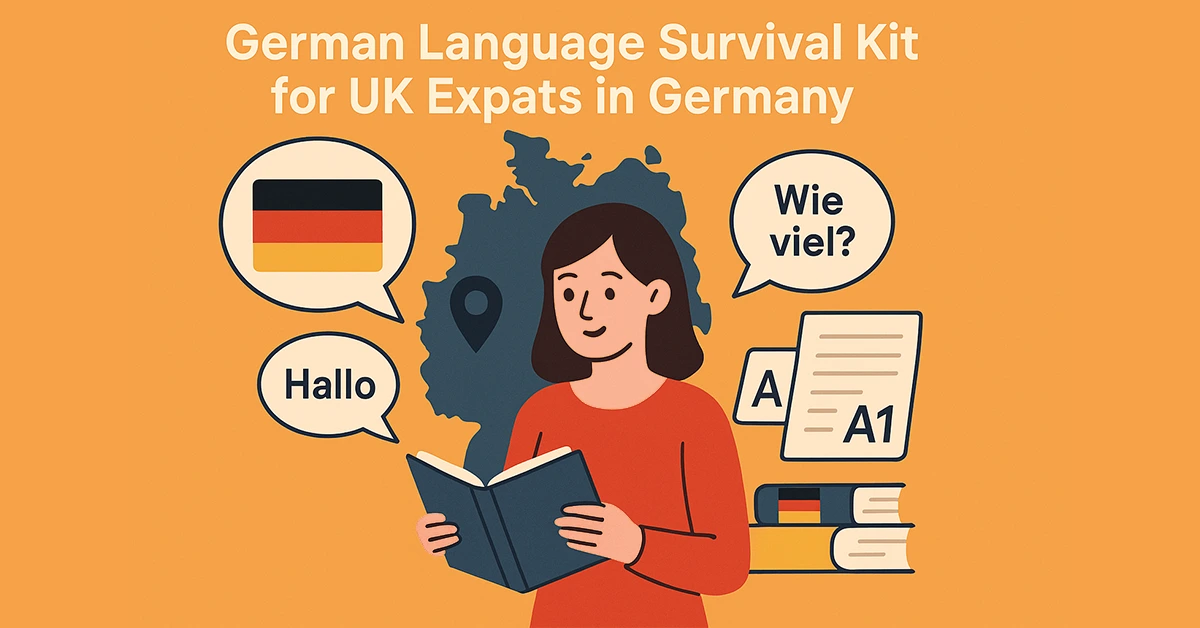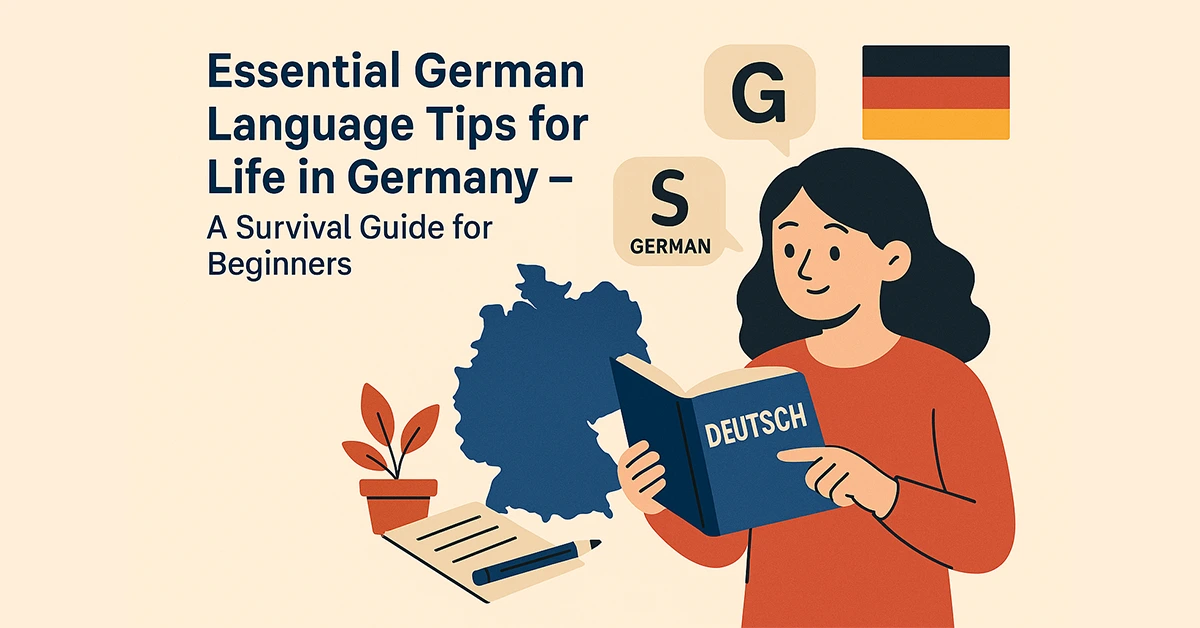Survival German
-

German Survival Kit for UK Expats in Germany
Learn essential German phrases, vocabulary, and survival tips for UK expats in Germany. This complete language kit helps you handle daily life with confidence.
-

Essential German Language Tips – Survival Guide for Beginners
Learn essential German language tips for life in Germany. This beginner’s survival guide covers daily phrases, vocabulary, and practical advice for confident living.